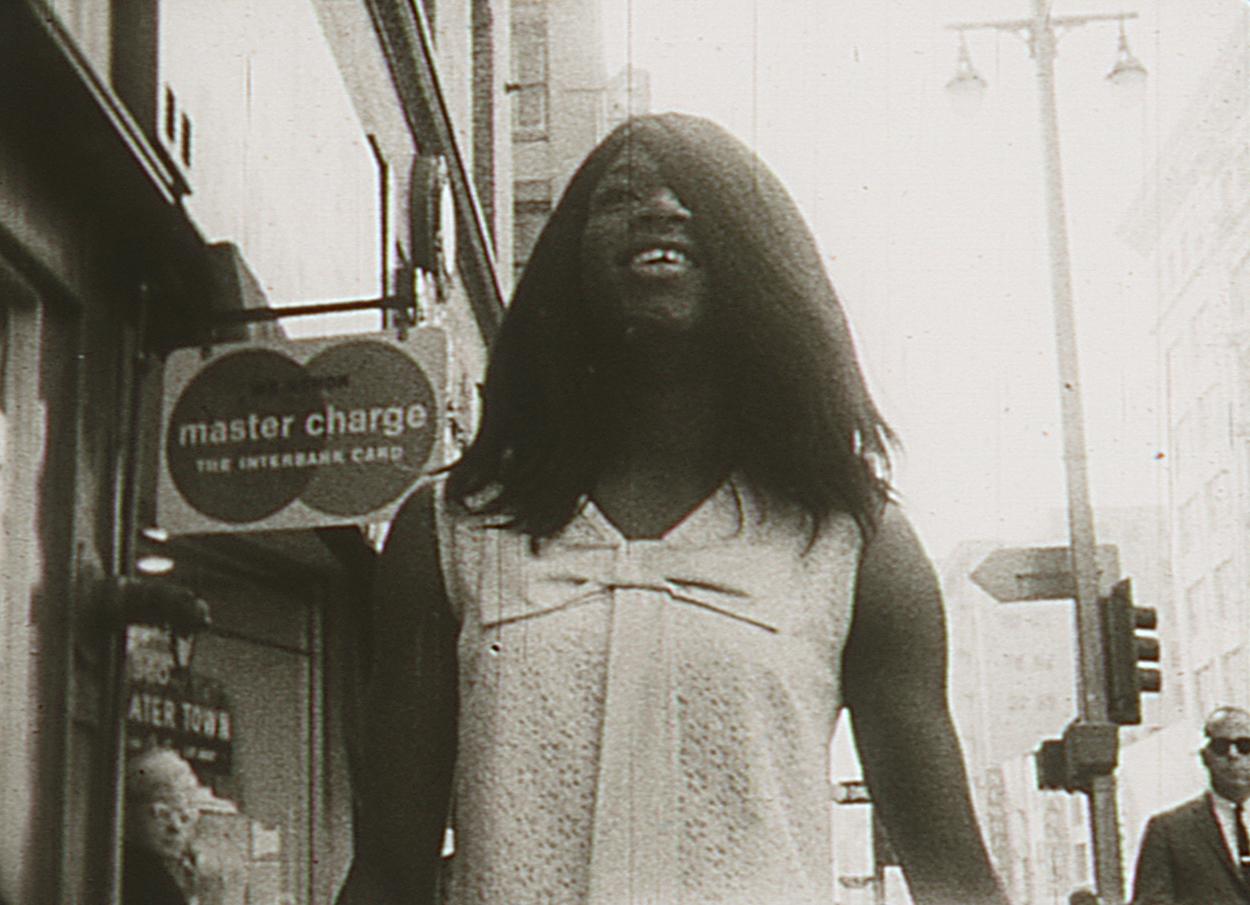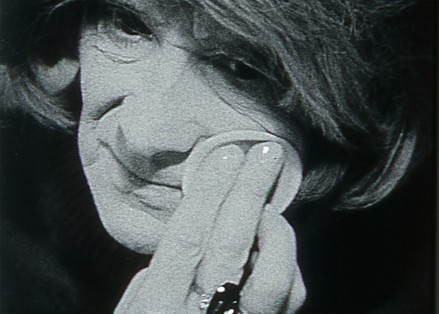
Portraits of Trans Lives c. 1970
Films
- Read More
 DocumentaryExperimental
DocumentaryExperimentalBehind Every Good Man...
Nikolai Ursin16mm, black and white, sound, 8.25 minRental format: 16mm - Read More
 DocumentaryExperimental
DocumentaryExperimentalIt's a Camp
Barry Pollack16mm, black and white, sound, 5.25 minRental format: 16mm - Read More
 DocumentaryExperimental
DocumentaryExperimentalAll Women Are Equal
Marguerite Parisblack and white, sound, 15 minRental format: 16mm
Description
For the fourth program in our multi-program screening series FILMS FOR SOCIAL CHANGE: REVISITED AND EXPANDED, join us at Maysles Documentary Center on March 22nd, 2024, at 7pm, for four filmic portraits of trans lives and experiences from the late 1960s and early 1970s, curated by Lucy Talbot Allen.
With the Cinema Verité movement well underway, and gay liberation on the horizon, the late 1960s and early ‘70s saw a trickle of documentary filmmaking on queer subjects. Shirley Clarke’s Portrait of Jason (1967) and Frank Simon’s The Queen (1968) are the best known among these works, but many more young independent filmmakers and experimenters in the nascent technology of portable open-reel videotape made their own forays into documenting queer and trans life. The works in this program, each a portrait of one or more trans women or transfeminine individuals, exemplify the confessional mode that characterized much of both documentary filmmaking and queer/trans activism at this protean moment in the history of both movements.
Behind Every Good Man, produced while director Nikolai Ursin was an MFA student at UCLA, uses a combination of unobtrusive observation, staged tableaux, and narration to offer a glimpse into the daily life of an unnamed Black trans woman. It's A Camp, in keeping with documentary depictions of drag ritual in The Queen and the much later Paris is Burning (1990), depicts a queen getting dolled up while her voiceover narration reflects on the societal reception of homosexuality. These shorts don’t identify their subjects by name, pronouns, or gender, so the assignment of identities like “trans woman”–a turn of phrase not commonly in use until the 2000s–and “drag queen” is speculative and perhaps teleological. As the subject-narrator of Behind Every Good Man explains, “I don’t think about which [rest]room to go into; I have my choice.”
The parsing of terminology does appear in the second two documentaries, a result not only of their more capacious runtimes but also of the battle lines queer and trans activists were beginning to draw by the early ‘70s. Interviewed at a protest by the directors of Transsexuals, the famed activist Sylvia Rivera distinguishes her identity from that of trans people who seek genital surgeries, explaining that she is satisfied with hormone replacement. Paula, the subject of All Women Are Equal, defines herself as a “transsexualist” because she wants to “go whole hog”–transition socially and perhaps biomedically, rather than cross-dress recreationally as so-called “TVs” do.
Yet despite the datedness of much of the language in these documentaries, familiar subjects for members of today’s trans communities arise too. Paula and the women featured in Transsexuals–Deborah Hartin and Esther Reilly–express frustration at the transphobic bureaucracy that creates barriers to their healthcare and discuss the ways sex can be both alienating and affirming. “It’s a fact of life that homosexualism and transsexualism are with us,” Reilly says toward the end of Transsexuals, “and have been since the beginning of time.”
– Lucy Talbot Allen
*This program also includes Susan Milano's Transexuals (1971, video, color, sound, 25 minutes).*